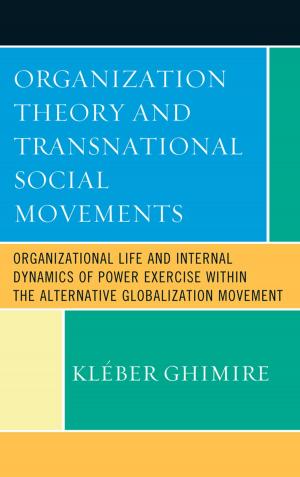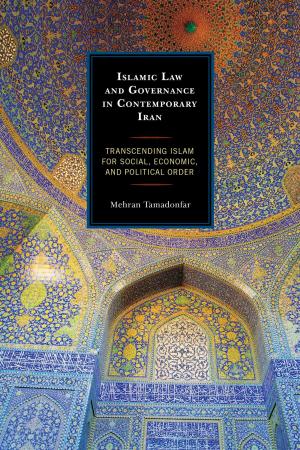After the Fall
Energy Security, Sustainable Development, and the Environment
Nonfiction, Social & Cultural Studies, Political Science, International, International Security, International Relations| Author: | Bruce Bagley, Luis Cláudio Fernandes Barbosa, Anthony Bryan, José Maria Cardoso da Silvaa, Andres Cala, Laura Carlsen, R. Evan Ellis, Christian Gomez, Hanna S. Kassab, Maxime H. A. Larivé, Suzanne Loftus, Bradford McGuinn, Gonzalo Molina, Dina Moulioukova, Herbert R. Reginbogin, Marcelo Zorovich | ISBN: | 9781498586627 |
| Publisher: | Lexington Books | Publication: | October 15, 2018 |
| Imprint: | Lexington Books | Language: | English |
| Author: | Bruce Bagley, Luis Cláudio Fernandes Barbosa, Anthony Bryan, José Maria Cardoso da Silvaa, Andres Cala, Laura Carlsen, R. Evan Ellis, Christian Gomez, Hanna S. Kassab, Maxime H. A. Larivé, Suzanne Loftus, Bradford McGuinn, Gonzalo Molina, Dina Moulioukova, Herbert R. Reginbogin, Marcelo Zorovich |
| ISBN: | 9781498586627 |
| Publisher: | Lexington Books |
| Publication: | October 15, 2018 |
| Imprint: | Lexington Books |
| Language: | English |
This edited volume examines the impacts of the 2014-2015 decline in the price of oil. Participants will examine the economic, social and political consequences on states and regions, along with their responses. The following questions will be examined: what were the impacts for countries experiencing an energy revolution in shale and gas like the United States and Canada? What were the repercussions of the collapse on other states of the Western hemisphere dependent on oil for growth and development; countries like Colombia, Venezuela and Mexico? Were these outcomes similar to those experiences in other parts of world like Nigeria, Russia and other petro-producing countries? How do developing countries intend to cope with such drastic and sudden exogenous economic shock? Will there be any benefits for energy poor, consumer countries like China, India and European Union member states? Related to these issues are sustainable developmental questions and concerns about the environment. Will cheap oil force other alternative and renewable energy technologies out of the market given lack of competitiveness? Finally, the volume’s chapters will discuss prospects for governance in the new oil environment.
This edited volume examines the impacts of the 2014-2015 decline in the price of oil. Participants will examine the economic, social and political consequences on states and regions, along with their responses. The following questions will be examined: what were the impacts for countries experiencing an energy revolution in shale and gas like the United States and Canada? What were the repercussions of the collapse on other states of the Western hemisphere dependent on oil for growth and development; countries like Colombia, Venezuela and Mexico? Were these outcomes similar to those experiences in other parts of world like Nigeria, Russia and other petro-producing countries? How do developing countries intend to cope with such drastic and sudden exogenous economic shock? Will there be any benefits for energy poor, consumer countries like China, India and European Union member states? Related to these issues are sustainable developmental questions and concerns about the environment. Will cheap oil force other alternative and renewable energy technologies out of the market given lack of competitiveness? Finally, the volume’s chapters will discuss prospects for governance in the new oil environment.















